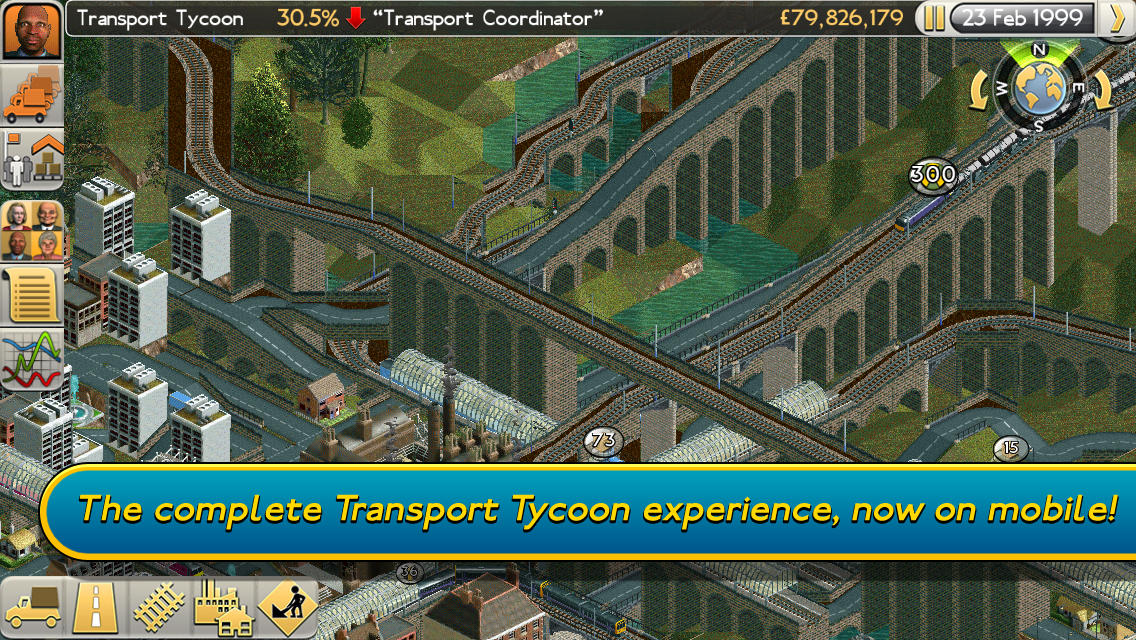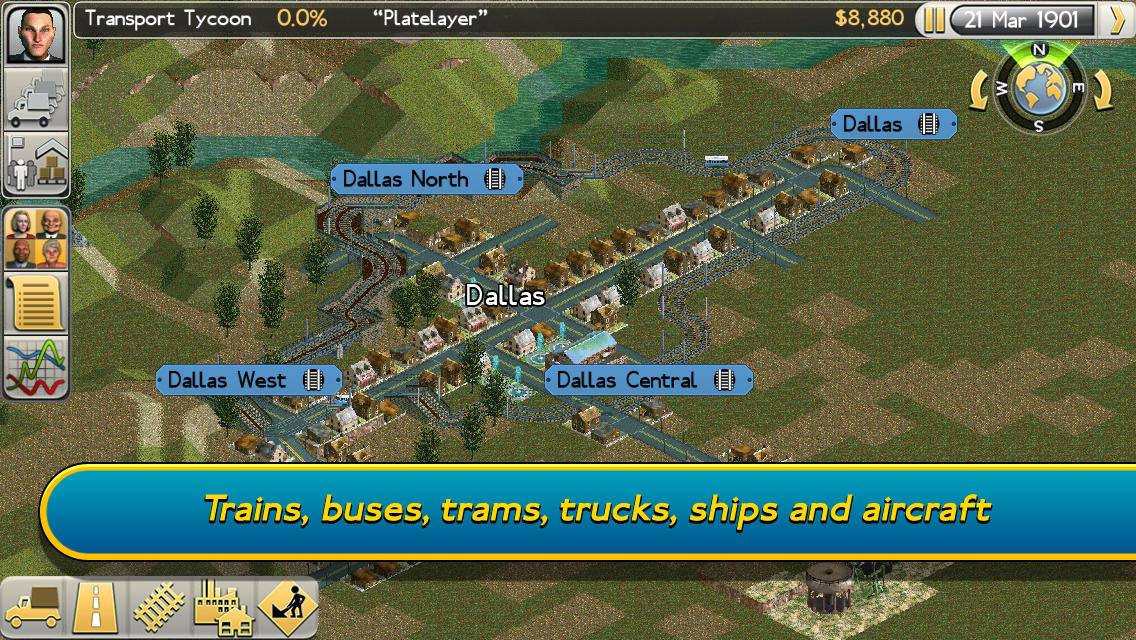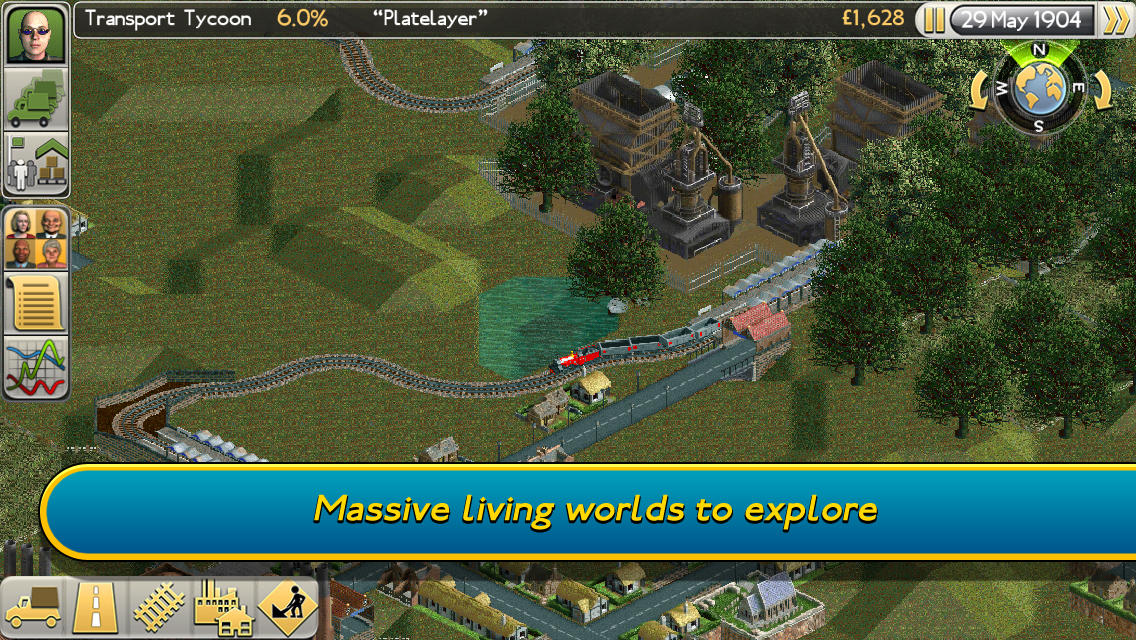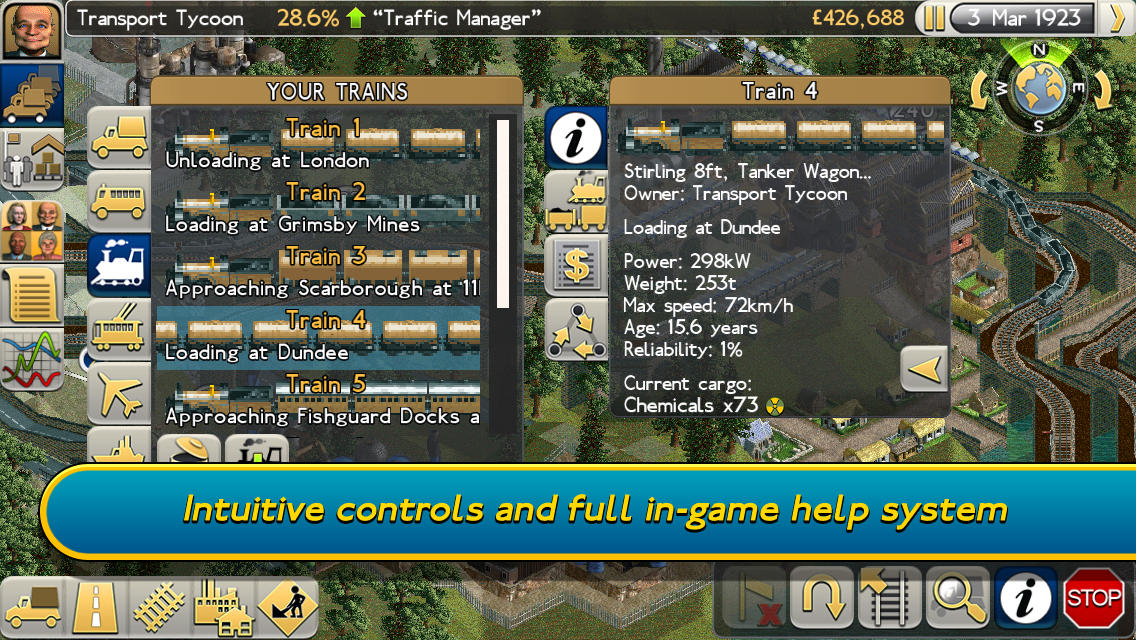 In the current economy, free-to-play games are becoming not only more prevalent in the app store, but more popular among users of iOS devices. Whether it’s free-to-play with aggressive badgering to purchase in-game currency or items (Family Guy: The Quest for Stuff (Free)), free-to-play with in-app purchases that generally leaves you alone (The Simpsons: Tapped Out (Free)) or premium games that also have staples of free-to-play, such as paywalls and long timers (Rollercoaster Tycoon 4 Mobile (Free)), it looks like it’s here to stay.
In the current economy, free-to-play games are becoming not only more prevalent in the app store, but more popular among users of iOS devices. Whether it’s free-to-play with aggressive badgering to purchase in-game currency or items (Family Guy: The Quest for Stuff (Free)), free-to-play with in-app purchases that generally leaves you alone (The Simpsons: Tapped Out (Free)) or premium games that also have staples of free-to-play, such as paywalls and long timers (Rollercoaster Tycoon 4 Mobile (Free)), it looks like it’s here to stay.
When Transport Tycoon ($6.99) was released on iOS, you had to pay to download it. And that was all you paid for. There were no in-app purchases to be had, whether optional or behind a wall. And this was a terrific thing. Not only was Transport Tycoon fun to play, but it was a great model; an enjoyable, well-designed game with no secondary money requirements.
With the recent release of Rollercoaster Tycoon 4 Mobile, and the mounds of negativity that have followed it ever since the release of its trailer, I decided to have a quick conversation with Chris Sawyer, creator of Transport Tycoon and the original Rollercoaster Tycoon games, to get his opinion on the current state of things.

“There are many ways to sell and monetize games and they all have pros and cons,” he says in an e-mail interview. “Personally, I prefer the premium game model, but there’s plenty of room in the market for free-to-play.”
That seems to be a fairly constant statement: Traditionally, most publishers have preferred premium game model. You spend months, possibly years to develop a game, release it at an upfront price, and aside from any bug fixes and content updates, you’re done with it. Sure, a developer may annoy a segment of the population because it’s not free, but in theory the overall investment is paid off quicker, which frees the developer to either release faster updates, or work on a new property.
I asked why he he chose to release Transport Tycoon as a premium title, and potentially lose out in sales and customers as a result.
“Transport Tycoon is a vast game where players can enjoy playing in many different ways and at different levels, and we felt that this suited the premium model very well. Players get an incredible amount of value for their purchase price and can then enjoy playing the game the way they want to without having to worry about making additional purchase decisions.”
And he speaks the truth. For the small price that Transport Tycoon will cost you, it’s an infinitely enjoyable experience, even more so with the recent 1.1 update, which adds solo scenarios, allowing you to run your empire in a sandbox, a completely remastered soundtrack by John Broomhall, the original composer, new achievements, and a smattering of bug fixes.
“A game like this should be all about the challenges and enjoyment of exploring, building, running and maintaining their transport empire." And that’s exactly what Transport Tycoon is, a game that requires constant monitoring, to ensure the success of the player and his or her’s company. Ads, such as full-screen interstitials, do a good job of distracting you from the task, as do popups saying you’d be so much better off were you to buy this and that. “It would be both frustrating and distracting if players were constantly being pushed towards in-game purchases, or worse still, if their progress through the game was actually dependent on in-game purchases.”

Don’t we all hate that? Playing a game, and coming up against a paywall that completely blocks progress unless we fork out money? Acceptable in a freemium title, depending on quality and price, but completely unacceptable in a premium title, where we’ve already paid an upfront cost of more than a buck. And this is for games that are not episodic, or based on seasons. Why is it that we purchase and download Republique (Free), and have no issue buying a season pass? Quality. The Wolf Among Us (Free)? The Walking Dead (Free)? Quality.
Buying episodes and hitting paywalls are a no-no in some titles, but what about in-app purchases that aren’t required? Buying a fertilizer to speed up your crops in FarmVille 2: Country Escape (Free), using clams in Family Guy to speed up a character’s action? What about completely optional purchases, like additional hints in Hitman: GO ($4.99), or distractions in Third Eye Crime ($1.99)?
Chris is in the nay camp.
“I’m not a great fan of in-game purchasing where players are encouraged to spend money to take shortcuts. It distorts the gameplay and rewards those who are willing to spend money rather than those who are willing to play the game well. It also has the feel of playing a money-making machine.”
That’s a good phrase for it, money-making machine. It seems like a vast majority of games are simply made to cash in. Search for Temple Run (Free) on the app store, and see how many results show up that have nothing to do with the game or Imangi Studios. Similar icons? Similar titles? Indeed. And almost exactly the same gameplay with lots of IAP.
“We wanted Transport Tycoon to be a fantastic value purchase where the player can enjoy the depth and breadth of the game without having to pay a single penny extra,” he says, in regards to the cost for the game. And again, he’s right. I can’t speak for everyone, but I can speak for a large percentage who would love to buy a game, and that’s it. And like a lot of bigger games, they’re constantly adding new things to keep it fresh and installed on your iPad. “We’ve even added more features and improvements over the last few months and players can update their game to add these features for free.”
“I don’t think it would have performed better as a freemium game, and I’m sure the game would not been well received by the players as a freemium game,” Mr. Sawyer said in regards to releasing the game as a premium title. What do you guys think? Do you think games, as a rule, perform better financially if there’s a cost associated, or if it’s free and relies on micro transactions?

“We have had a lot of positive feedback about Transport Tycoon’s value as a fully-paid game at the price level we chose.”
With some of the questionable free-to-play titles that have been, and will be released, one must ask: is freemium here to stay, or is it simply a passing fad that will eventually use up its fifteen minutes? My vote, my hope, is for the latter. But I’m not optimistic, mainly for the fact that IAP’s are not relegated simply to the realm of mobile gaming. Console games contain DLC and other microtransactions. Look at Ryse, for example. You can buy DLC’s for the game, but you can also buy packs of gold.
“Yes, I expect free-to-play to be around for a long time. It’s one of many ways of financing the costs of developing and marketing a game.” He does have a point. Free-to-play is one way to recoup the costs of development, which can be extremely high. Just as top-tier console games have ballooned to having a budget in the millions, so too have mobile game budgets jumped. “There may be other new ways to finance games in the future, which have not been invented yet.” Whatever this future model may be, let’s hope it’s not similar to the current one.
If you’ve played Transport Tycoon, with its plethora of menus, micromanagement and in-depth simulation, you’ll know it’s not a game you can pick up, play for ten minutes, and be done with. It requires strategy, forethought, managing of finances and time. Such is generally the realm of hardcore gamers, and Chris feels the same. “I think at the moment many of Transport Tycoon’s players are the hardcore gamers. These are the players who like to spend a lot of time and focus on a game, with as much detail and depth as Transport Tycoon offers.”
Transport Tycoon is not for the strictly casual gamer, but perhaps one who is looking for more difficulty in their mobile offerings. It’s also a potential gateway game. “Our hope is that many casual gamers will be drawn into the game to try something with a bit more depth and challenge.”

The future is a wonderful and scary place. Who knows what will happen, what we’ll have in the next two, five, ten years. Will we still be playing on iPad-like devices? Will wearables, like Google Glass, be the primary method of gaming? Or will we go even further, like in the film eXistenZ, where we’ll have implants that allow us to hook up? Maybe that last one is a little out there. But with the rapid expanse of technology, having more power in smaller and smaller devices, it’s a bright, neon-draped future.
“The future for mobile games looks good. Mobile platforms now have enough power and memory to allow PC-quality, in-depth games like Transport Tycoon to run well, and the touch interface suits these types of game perfectly.”
A big thank you to Chris Sawyer for answering these questions. I, personally, am looking forward to many more Transport Tycoon updates, as well as the next PC iteration of Rollercoaster Tycoon.